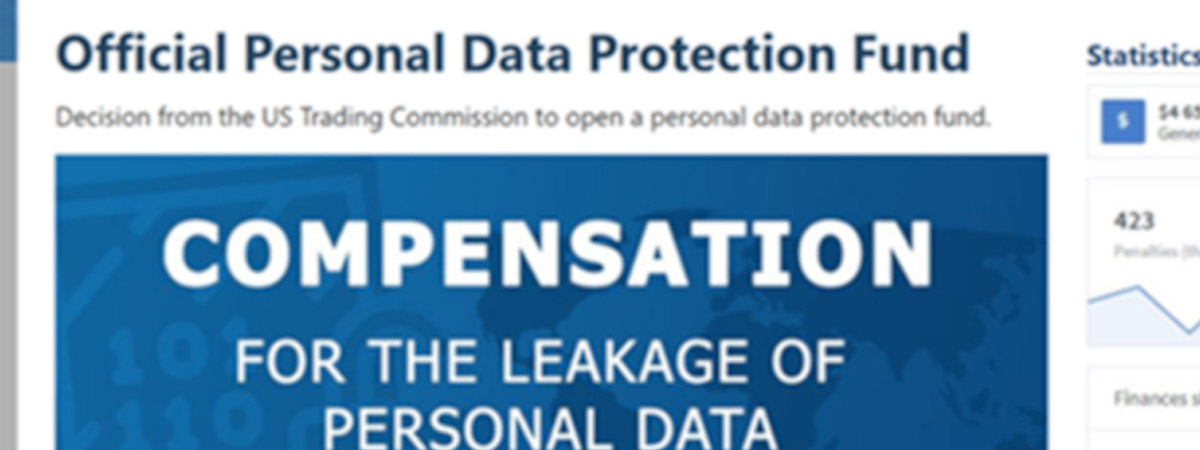
The US Federal Trade Commission (FTC) has released information on scammers impersonating the agency, warning the public that the criminals operate a spoofed website to trick consumers into disclosing financial information, with a tantalizing promise of instant cash. The FTC, an independent agency of the US government, enforces civil US antitrust law and promotes consumer protection.
In a blog post titled “Scam ‘US Trading Commission’ website is not the FTC,” the agency draws attention to an impostor site called “the US Trading Commission” that uses the FTC’s seal and address.
The scam site claims it operates a “personal data protection fund” to compensate those whose personal information has been exposed on the web.
“The site says you can ‘instantly receive’ a cash payment by clicking on some links and giving the site your personal data and bank account or electronic wallet information,” the real FTC warns.
“Of course, if you do that, your money will be gone, you may download malware onto your device, and scammers can misuse your personal information to steal your identity,” the agency notes.
The site promises that payment “is available to residents of all countries of the world,” and there have already been some victims, according to the FTC (hence this week’s warning).
“People as far away as Russia, Ukraine, Belarus, Kazakhstan, and Latvia have reported the site to the FTC, and several have reported losing money,” according to the post.
The agency makes it clear to anyone who might be tempted by such scams that it will never ask anyone for money, or their bank account, credit card, or Social Security number for a refund.
“If the FTC needs to get money to you, we usually send a check through the mail. You can learn about our refund programs at FTC.gov/refunds,” the agency stresses.
Anyone who encounters this scam or others like it are urged to report them to reportfraud.ftc.gov.
This warning was issued on January 25 in a joint statement with the Cybersecurity & Infrastructure Security Agency (CISA).
US citizens are also encouraged to go through CISA’s Security Tips on Avoiding Social Engineering and Phishing Attacks and Preventing and Responding to Identity Theft.